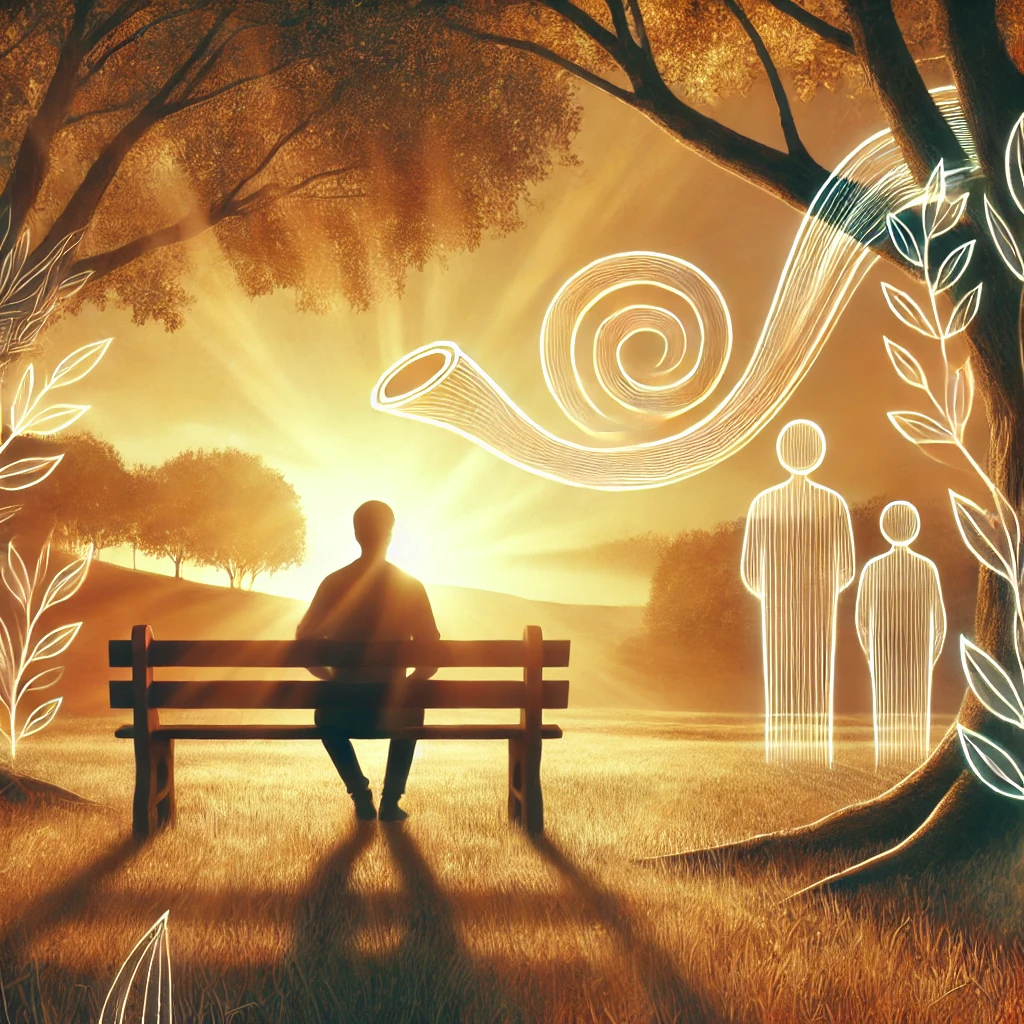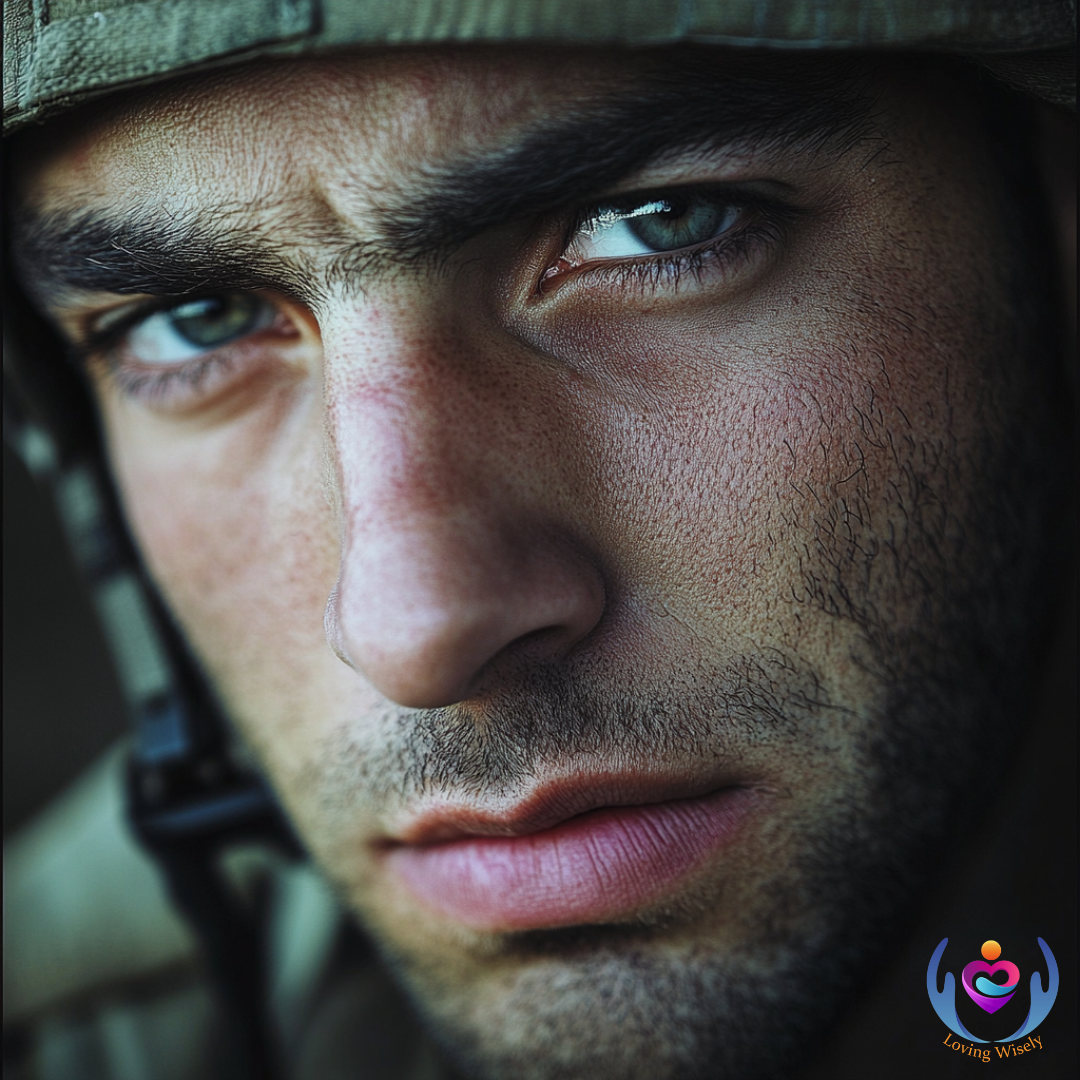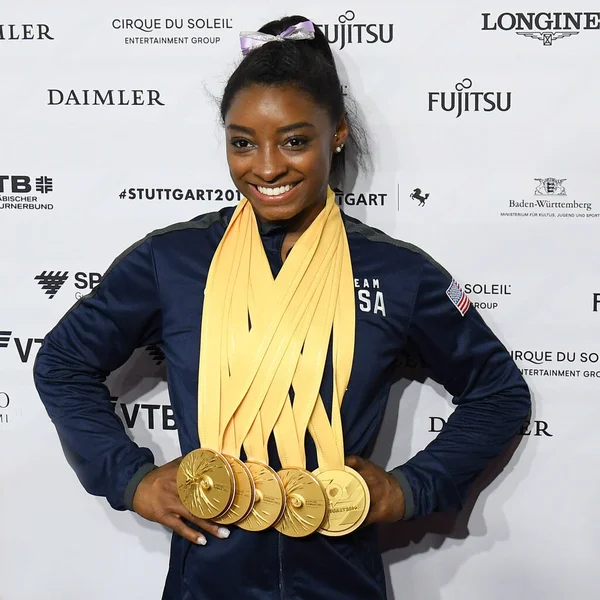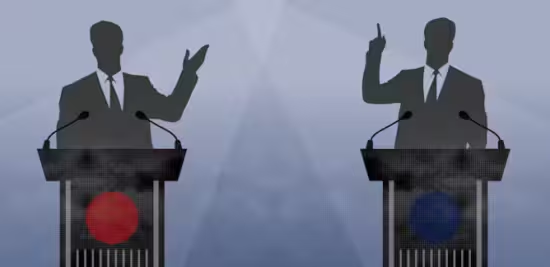Weathering Winter: Supporting Each Other Through Seasonal Changes
As the days grow shorter and the air turns crisp, many of us begin to feel the shift—not just in the weather, but in our mood and energy. For some, this seasonal transition brings joy: cozy sweaters, warm drinks, and holidays with loved ones. But for others, it ushers in a wave of Seasonal Affective Disorder (SAD), a type of depression that typically occurs during the fall and winter months. If you or your partner experiences SAD, it can affect not just individual well-being but also your relationship dynamics.
Here’s the good news: with awareness and intentional effort, these challenges can be navigated in ways that are ultimately constructive, allowing for your relationship to “weather” this “storm” well into the summer months.
Understanding Seasonal Affective Disorder
SAD isn’t just “winter blues” or a fleeting sadness. It’s a form of clinical depression triggered by the changing seasons, often linked to reduced sunlight exposure. Symptoms may include persistent fatigue, difficulty concentrating, irritability, changes in appetite (like craving carbs), and feelings of hopelessness. Recognizing these signs in yourself or your partner is the first step to managing their impact on your relationship.
Beyond the clinical definition, SAD can feel like an uninvited guest in your relationship—casting a shadow over shared moments and sapping the energy needed for connection. Acknowledging this dynamic with honesty and compassion sets the stage for a deeper partnership.
If you or your partner are struggling with SAD, it’s essential to approach the situation with empathy and patience. Imagine carrying a heavy, invisible weight—that’s often how SAD feels. Statements like “Just snap out of it” or “Think positively” can unintentionally dismiss their experience.
Instead, try phrases like, “I’m here for you” or “I’m so sorry this is hard for you right now.” These small but meaningful validations remind your partner they’re not alone.
Practical Ways to Support Each Other
- Create a Bright Environment Together Consider investing in a light therapy lamp, which mimics natural sunlight and can help regulate mood. Place it in a shared space to benefit both of you. Open curtains during the day and organize your home for maximum light exposure. Making these changes together creates a brighter environment for both partners.
- Focus on Seasonal Joys Instead of lamenting what’s missing, explore seasonal activities you can both enjoy. Whether it’s baking treats, watching winter movies, or bundling up for a walk, these shared moments can bring joy to both of you and lighten the mood for the partner with SAD.
- Respect Energy Levels—Yours and Theirs Fatigue and mood swings can affect both the person with SAD and their partner. If your partner needs a quiet night, embrace the opportunity for rest yourself. Avoid overextending and check in about plans with open-ended questions like, “Would staying in feel better for both of us tonight?” Honoring each other’s cues keeps balance in the relationship.
As the leaves fall and the nights grow longer, remember: this season, like all seasons, will pass. However, it can be helpful to consider seeking support, whether individually or as a couple. Therapy, even for a short period, can offer tools for managing challenges and help you both feel more connected and understood. Looking forward to hearing from you!
Love, Legacy, and Listening – Lessons from Chayei Sara
This week’s Torah portion of Chayei Sara, which features the story of the first matchmaking process—that between our forebears Yitzchak and Rivka—is often the jumping-off point for many a Shabbat table discussion about the world of dating and relationships. Yet to frame it solely as a romance misses its depth. Within this seemingly straightforward narrative lies a tapestry of profound insights into relationships, legacy, and the sacred dynamics of building a shared future. The meeting of Yitzchak and Rivka is not merely a tale of boy meets girl. Rather it serves as a blueprint, showing us how to build relationships that honor the past, and embrace the present, all while paving the way for a meaningful future.
Legacy
The parsha begins with Sarah’s death, an event that casts a shadow over the family. Yitzchak, deeply affected by his mother’s passing, carries a quiet grief. Avraham, on the other hand, is forward-looking, ensuring the continuity of Sarah’s legacy by securing a partner for Yitzchak.
This juxtaposition is striking. Yitzchak’s relationship with Rivka begins not in joy but in the shadow of mourning. Yet it is precisely this grief that shapes the relationship: Rivka is not just a partner for Yitzchak; she becomes the bearer of Sarah’s legacy. When Rivka enters Sarah’s tent, the Torah tells us that the miracles associated with Sarah—her Shabbat candles staying lit, the blessing in her dough, and the cloud of the Shechinah above her tent—return.
In relationships, we are often drawn to the idea of “starting fresh,” but this story challenges us to think about how the past informs the present. What legacies, experiences, or wounds do we carry into our relationships? How do our partnerships honor our earlier experiences while carving out something uniquely our own?
Listening
Rivka’s defining moment comes at the well, where she not only offers water to Eliezer but also to his camels. This act of kindness is not incidental; it is the criteria Eliezer sets to identify Yitzchak’s future wife. But to qualify this as simply kindness is missing the point – it is an act of proactive leadership.
Watering ten camels is no small task. Rivka doesn’t wait to be asked; she anticipates the needs of others and acts decisively. Her generosity is proactive, not reactive— and stems from her attentiveness to the needs of those she dedicates herself to caring for, even when those needs are unspoken.
In relationships, kindness must transcend politeness. It’s about creating an environment where both partners feel nurtured and seen. Are we anticipating our partner’s needs? Are we willing to go beyond convenience to offer real support? Rivka’s kindness challenges us to step into a space of leadership and active listening within our relationships, where we shape the dynamic rather than passively responding to it.
Love
When Rivka first sees Yitzchak, she veils herself. This act of modesty reflects an understanding of the sacredness of their encounter. The veil is not a barrier; it is a boundary that acknowledges the gravity of what is about to unfold.
In relationships, we often think of intimacy as the removal of barriers, but Rivka’s veil suggests that sacred boundaries are equally vital. Vulnerability does not mean laying everything bare all at once—it means creating a space where trust and connection can unfold gradually, with intention.
What boundaries do we set to protect the sacredness of our relationships? How do we honor the gravity of forming a bond with another person, ensuring it is built on respect and care rather than haste?
Chayei Sara’s Challenge to Us
Legacy: What parts of our past do we bring into our partnerships? Are we honoring the legacy of those who shaped us while allowing space for new growth?
Listening: Are we truly listening to our partners’ needs both spoken and unspoken? Are we offering kindness that is proactive and transformative, or simply performative?
Love: Do we honor the sacredness of our relationships by setting boundaries that nurture trust and intimacy?
This week, as Shabbat candles are lit in the spirit of Sarah’s tent, lets reflect on the ways we can bring light into our relationships—through acts of kindness, meaningful boundaries, and a renewed commitment to building something sacred.
What step will you take today to bring these lessons to life?
A Sukkot Reflection about Relationships
Sukkot is a holiday where we step out of our comfortable homes and into the fragility of a sukkah, embracing the elements of nature—the wind, the cold, and sometimes even the rain. It’s a powerful metaphor for relationships, teaching us that true connection comes when we leave behind the walls we construct around ourselves and allow the uncomfortable exposure to create space for growth.
In a world where we often seek control and stability, Sukkot reminds us that there’s strength in surrendering to vulnerability. Much like sitting in a sukkah exposed to the outside world, being in a relationship means allowing someone to see your imperfections and share in your fears. It’s not always easy, but it’s through embracing this discomfort that we uncover deeper truths about ourselves and each other.
This Sukkot, try Sharing a Personal Story: Just as the sukkah opens itself up to the world, consider sharing something personal with your partner—a story about your past or a challenge you’ve faced. Vulnerability is an invitation to deeper understanding. For example, you might say, “I don’t usually talk about this, but I want you to know…” Opening up creates space for your partner to be open in return.
When we build our “sukkah” in a relationship, we have to be intentional about how we construct it. Are we setting up shaky walls of pretense, or are we building with the open honesty that will let light and warmth in? Relationships thrive when we take the risk to show our true selves—our joys, our insecurities, and even our uncertainties. It’s in that openness, just like in the sukkah, that we find genuine security, one that is built on trust rather than illusion.
This Sukkot, try Allowing Your Partner to Support You: We often try to handle everything on our own, but just as we trust the sukkah to shelter us, we need to trust our partners to support us. Next time you’re feeling overwhelmed, ask for help. Whether it’s emotional support or help with a task, showing that you can rely on them builds trust. For instance, if you’ve had a rough day, say, “I’m feeling really stressed. Could you help me figure this out?”
Sukkot also teaches us that we don’t need perfect conditions to experience joy. We might feel a breeze through the sukkah or hear a storm in the distance, but the celebration continues because we’ve learned to find beauty in the impermanent. Similarly, relationships aren’t always about perfection or avoiding conflict, but about learning to weather the storms together, knowing that each challenge brings you closer and strengthens your bond.
This Sukkot, try Celebrating the Small Wins: Just as we celebrate in the sukkah despite imperfect conditions, take time to celebrate small successes in your relationship. Did you navigate a tough conversation with grace? Did your partner support you in an unexpected way? Acknowledging these moments brings more joy into the relationship and shows that, like the sukkah, it’s the simple, authentic moments that matter.
So, as you reflect on your relationships this Sukkot, ask yourself: What walls have you built to protect yourself, and are they keeping you from deeper connection? Can you step out into the vulnerability and trust that, just like the sukkah, there’s strength in letting go and embracing the unknown?
Cheshbon HaRelationships
*Cheshbon hanefesh*—an accounting of the soul—is a key practice during Elul, a time dedicated to self-reflection and spiritual growth. We use this period to look back on our past actions, assess how we’ve lived over the past year, and set intentions for the year ahead. But this year, why not expand that sacred practice to include your past relationships—what I’m calling a “Cheshbon HaRelationships”? Elul gives us the perfect opportunity to reflect with intention on how our relationships, especially romantic ones, have shaped us. By engaging in this reflection, you can transform past experiences into powerful lessons that help guide you toward deeper self-awareness and healthier future connections.
It’s easy to fall into the trap of seeing past relationships that didn’t last as a waste—wasted time, money, and emotional energy. But Elul reminds us that we have the power to reframe those experiences. They’re only a waste if we let them be. Instead, I invite you to take some time this Elul to do some productive introspection. Light a candle, put on some music, and dedicate a quiet moment to reflect on your romantic past. To help guide you, I’ve broken this *cheshbon* into three main areas:
- What Did You Learn About Them?
Every person you’ve been in a relationship with has left an imprint on you. Even if the relationship didn’t last, there were moments of insight and lessons learned. Think back to each person—what strengths did they have that you admired? Maybe one was incredibly patient, and you found yourself drawn to their calm presence. Perhaps another was great at expressing their needs or had a passion that made you reflect on your own values.
By acknowledging their strengths, you not only honor what attracted you to them, but you also start to identify qualities you might want to develop in yourself or look for in a future partner.
Ask yourself:
– What’s one strength this person had that I don’t?
– How did their qualities shape my understanding of what I value in a partner?
– What did I admire most about them, and how can I integrate that into my life?
- What Did You Learn About Yourself?
Relationships act as mirrors, reflecting back who we are—sometimes in ways we don’t expect. Maybe you learned that you tend to shut down in conflict, or that you have a habit of not communicating your needs clearly. These insights can be uncomfortable, but they’re also essential for growth.
Elul invites us to look inward and ask hard questions about how we show up in our relationships. Did a past relationship bring out the best in you, or did it reveal behaviors you want to change? Recognizing these patterns helps you grow and prepares you for healthier, more fulfilling relationships in the future.
Ask yourself:
– What did this relationship teach me about myself?
– How did I handle conflict or communication in this relationship?
– What personal qualities or habits do I want to improve based on what I learned?
- What Did You Learn About Your Relationship Patterns?
Now, step back and look at the bigger picture. Do you notice any recurring themes in your relationships? Are you consistently drawn to a certain type of person, or do you find yourself facing the same challenges in each relationship? Recognizing these patterns is key to breaking free from cycles that no longer serve you.
Perhaps you’ve been attracted to emotionally unavailable partners, or maybe you tend to lose your voice in relationships, prioritizing their needs over your own. Elul gives you the chance to break these patterns and create new ones that are healthier and more aligned with what you want for your future.
Ask yourself:
– What relationship patterns do I notice across different partners?
– What dynamics keep repeating, and how can I address them?
– How can I break old patterns and cultivate healthier ones in my future relationships?
By taking ownership of your past experiences, you empower yourself to enter the new year with clarity, purpose, and the wisdom gained from your relationships. Instead of lamenting time lost, recognize the lessons you’ve learned, and move forward with hope for deeper love and connection.
May the insights you gain from this *Cheshbon HaRelationships* bring you closer to the meaningful, fulfilling relationships you seek in the year ahead.
Using the Month of Elul to Strengthen Ourselves and Our Relationships
Elul is a time of deep reflection, a spiritual opportunity to return to our best selves before Rosh Hashanah. Traditionally, we use this month to assess our relationship with Hashem, but it’s also a powerful time to assess the relationships in our lives—with family, friends, and significant others.
When we reflect on teshuva (repentance), it’s not just about admitting past mistakes—it’s about committing to growth and improvement. As Hasidic master Rav Tzadok HaKohen of Lublin is quoted as saying, “Teshuva is 1% about the past, and 99% about the future.” The same applies to our relationships—and even more so, to our personal growth. Working on ourselves during Elul opens the door to finding a partner who will grow with us into the future.
1. Honest Self-Reflection
Elul is about taking stock of where we are. In our relationships, this means checking in with ourselves. Are we holding onto old grudges? Carrying unrealistic expectations? Elul encourages us to let go of what weighs us down. Reflect on how your own patterns of behavior—perhaps rooted in past experiences—impact your current relationships. By doing this work, we not only improve our current connections but also prepare ourselves to find a partner with whom we can build a meaningful future.
2. Embracing Vulnerability
During Elul, we ask for forgiveness not only from Hashem but also from each other. This is an ideal time to practice vulnerability. Admitting where we’ve gone wrong requires humility, but it’s through this that true growth happens. Opening up to our partner—or even to ourselves—about our fears and insecurities allows us to create a deeper, more authentic connection. The more we embrace vulnerability, the more ready we are for a partner who can meet us at that same level of emotional honesty.
3. Strengthening Our Communication
This is the time to listen—not just to the shofar blasts that call us to attention, but to the people in our lives. The Rambam explains that the shofar is meant to wake us from our spiritual slumber. Can we apply this message to our relationships? Sometimes we get caught in routines, taking our loved ones for granted. Elul is our reminder to wake up, not only in our current relationships but also in preparing ourselves for future ones. By improving communication and being more present, we cultivate skills that will help us connect more deeply with a future partner.
4. Working on Our Middot (Character Traits)
Just as we work on middot like patience, kindness, and humility in our spiritual lives, these traits are crucial in building healthy relationships. Elul gives us the chance to focus on improving these qualities, knowing that the work we do now will shape our future. The person we become during this time will help us attract the kind of partner who values growth and mutual support. By cultivating positive middot, we set the stage for a future relationship rooted in respect, love, and shared values.
As we prepare ourselves spiritually during Elul, let’s also use this time to elevate our relationships—present and future. The personal work we do today is an investment in a brighter, more connected future, both with Hashem and with a partner who is aligned with our growth. By the time Rosh Hashanah arrives, may we not only feel more aligned with our values but also more prepared to find and build a meaningful relationship with someone who shares them.
How Less Can Be More
Picture this: You’ve just spent a fortune on reservations at the “perfect” venue. You’ve been battling on the phone all day to secure that spot, only to arrive at the date utterly drained. The pressure of making it worth it creates an awkward atmosphere, and instead of connecting, you’re both caught up in justifying the time and money spent. Authenticity? It’s nowhere to be found. You’re each busy performing and trying to meet the high expectations set by the elaborate plans. At best, you’ve pulled off an impressive show; at worst, you both leave feeling resentful and underwhelmed.
Now, imagine a casual coffee date instead. The lack of expectations opens up space for genuine conversation. A $5 coffee might seem insignificant, but it becomes a small price for a meaningful connection.
Dating doesn’t have to be a high-stakes game. The stress of elaborate plans and big investments often leads to disappointment and a lack of genuine connection. This pressure can make it hard to relax and truly get to know each other, overshadowing the potential for a real connection.
That’s not to say you shouldn’t splurge occasionally for someone special. However, spending excessively to impress or present a curated version of yourself may not be the best way to find a meaningful partner. Even if you can afford it, such grand gestures can create a sense of obligation and pressure that detracts from authentic connection. Save the lavish plans for when the relationship is established and genuine.
By adopting a low-stakes approach, you reduce the pressure and foster a more relaxed, authentic interaction. Simple, spontaneous activities like a park stroll or a coffee chat can be just as fulfilling and enjoyable without the added stress of elaborate planning.
Reflect on your dating habits and consider how they impact your experience. Try planning a low-stakes date—a simple coffee meet-up or a walk in the park. See how this more relaxed approach influences your connection and interaction. Embracing low-stakes dating can make the journey of getting to know someone more enjoyable and authentic, leading to deeper, more meaningful connections.
Behind every returning soldier, there’s a story of resilience—and often, an untold struggle with intimacy and sexual health.
The ongoing conflict in Israel has left many of our soldiers profoundly affected, not only by the physical and emotional scars of war but also by the challenges they face when trying to reintegrate into everyday life. Since Oct 7th, I have seen firsthand how these brave individuals grapple with complex and often confusing sexual responses after their service in Gaza. These responses can vary widely, from hypoactive sexual desire (a significant decrease in sexual interest) to hyperactive sexual desire (an overwhelming increase in sexual activity).
The Impact of War on Sexual Health
The psychological and physical toll of war can extend far beyond the battlefield, significantly impacting a soldier’s sexual health and intimate relationships. The transition from the hypervigilant state required in combat to the perceived safety of civilian life is neither immediate nor easy. This disconnection can lead to significant challenges in their personal relationships, where intimacy, once a source of comfort and connection, may now feel unfamiliar or even unattainable.
Hypoactive Sexual Desire: Understanding Withdrawal
One of the most common issues I encounter is hypoactive sexual desire among returning soldiers. This condition can be deeply distressing for both the soldier and their partner. Several factors contribute to this withdrawal:
● Psychological Trauma: The relentless stress and trauma of war can lead to conditions
like PTSD, anxiety, and depression, which often suppress sexual desire as the mind and body remain in a state of alert, focused more on survival than on intimacy.
● Emotional Numbness: Many soldiers report feeling emotionally numb as a coping mechanism to deal with the horrors of war. Unfortunately, this numbness can spill over into their intimate relationships, making it challenging to connect on a sexual level.
● Guilt and Shame: Some soldiers carry a heavy burden of guilt or shame related to their actions in combat or simply because they survived while others did not. These intense emotions can create a significant barrier to sexual intimacy, leaving them feeling undeserving of pleasure or connection.
Hyperactive Sexual Desire: The Urge to Reconnect
On the other hand, some soldiers experience the opposite—a hyperactive sexual desire. This heightened drive can be influenced by:
● Seeking Reconnection: After enduring the isolation and fear of combat, some soldiers may turn to intense sexual activity as a way to reconnect with life, affirm their humanity, and re-establish bonds with their partners.
● Adrenaline and Hypervigilance: The adrenaline and heightened alertness that kept them alive in combat may linger, sometimes leading to impulsive or compulsive behaviors, including increased sexual activity. What might seem like a healthy sexual drive can often be a continuation of the fight-or-flight response, rooted in survival rather than intimacy.
● Escaping Trauma: For others, sex becomes a temporary escape from the painful memories and intrusive thoughts of war. By immersing themselves in the physicality of sex, they can momentarily push aside the trauma that haunts them.
Therapeutic Intervention: The Role of Specialized Therapy in Healing
Addressing these complex sexual responses requires more than just understanding—it demands specialized therapeutic intervention. Therapy offers soldiers a safe space to process their trauma, explore their emotional responses, and begin to heal. A trauma and sexual health specialist is essential in this process, providing tailored approaches like Somatic Experiencing Therapy or Eye Movement Desensitization and Reprocessing (EMDR) Therapy . This body- focused therapy helps soldiers reconnect with their physical sensations, release stored trauma, and gradually reclaim their sexual health.
Beyond individual therapy, couples therapy is also invaluable. It equips partners with the tools to navigate these challenges together, fostering open communication, understanding, and a renewed sense of connection. By working closely with a specialist, soldiers and their partners can rebuild their relationship on a foundation of trust, patience, and mutual support.
If you or someone you know is navigating these challenges, reach out for specialized support today. Healing is possible.
The Best You Can Be: A Relationship Lesson from Simone Biles
(image credit: depositphotos)
Have you ever felt overwhelmed by the need to be perfect in your relationship, constantly trying to meet your partner’s expectations while concealing your own struggles? Watching the Olympics with my family got me thinking – how do Olympians do it? The immense pressure, tremendous expectations, all while exuding this aura of being superhuman? Listening to American Gymnast, Simone Biles’s provided me with some insight:
Despite an apparent injury, Biles competed with her characteristic excellence, leaving us not only in awe of her athletic prowess but also inspired by her approach to challenges. Her journey provides valuable lessons not just for athletes, but for anyone striving to build healthier relationships with themselves and others .
When asked if she was okay after the injury, Biles replied, “Yup! As good as I can be.” This simple response carries a powerful message: all we can expect of ourselves is to be the best we can be. This mindset is not only crucial in sports but is also a cornerstone for successful relationships. Being our best selves involves showing up authentically: being honest about our limits and capabilities.
In 2021, Simone Biles made headlines by withdrawing from competition to prioritize her mental and physical health, a decision some criticized as quitting but which was actually a profound act of self-care and self-awareness. By choosing her long-term well-being over short-term performance, Biles demonstrated the importance of stepping back to prevent burnout and stay engaged with our partners. This was during the COVID-19 pandemic, where the absence of her family significantly impacted her mental health, highlighting the crucial need to recognize and address the lack of a support system. This situation underscores the importance of acknowledging when support is missing and seeking help, as well as the value of understanding and communication in relationships to navigate challenges effectively.
Fast forward to 2024, Biles’ decision to discuss how she views the limits to her performance because of her injury further showcases her courage to be vulnerable. Biles is a woman in tune with when it is appropriate and inappropriate to push herself. What was the right choice for her in 2021, looked different this time around. In both she was able to put others’ expectations for her to the side, and focus on being “as good as I can be”. In relationships, embracing our vulnerabilities can strengthen our bonds. It allows us to be authentic, express our fears and weaknesses, and seek and offer support. Biles faced immense pressure but understood that the only person she needed to answer to was herself.
So, how does this translate to our everyday relationships? Reflect on when you last allowed yourself to be vulnerable with your partner and whether you create a safe space for them to share their own vulnerabilities. Consider if it’s time to revisit opportunities you’ve previously avoided or if you’re overextending yourself, as sometimes our commitments to others prevent us from being honest about our limits. Simone Biles teaches us that true balance comes from being forgiving with ourselves. We can all learn from Simone’s approach: strive to do your best, embrace your vulnerabilities, and foster a safe space for yourself and others. By doing so, you’ll build deeper connections and navigate your relationships with greater empathy and understanding. Biles’ journey reminds us that real strength lies in being in tune with ourselves, both in our personal achievements and in our relationships.
A Different Kind of Debate
Following the recent presidential debate, I was struck by the nature of conflict presented on stage. As someone who frequently navigates conflicts with clients, the debate epitomized the art of arguing with words. This spectacle got me thinking about what we can and can’t learn from these intense exchanges, strategies, and emotional undertones that permeate the conversation.
Presidential debates are inherently adversarial, designed to highlight differences and showcase a candidate’s ability to “win” an argument. In relationships, however, the goal should be resolution and understanding, not victory. Viewing conflicts as competitions to be won can foster resentment and drive a wedge between partners. Remember, it’s not you vs. them; it’s both of you vs. the problem. Instead of focusing on winning an argument, approach conflicts in a collaborative spirit, not combative. This is an opportunity to find a solution together.
Debates often prioritize quick, impactful sound bites over deep, meaningful dialogue. This approach can be detrimental in relationships, where meaningful communication is essential. Partners need time to express themselves fully and to understand each other’s perspectives without being interrupted or sidelined. Value holding your tongue, allowing the other person to finish speaking. If you feel the need to cool down – your not on the clock, and there’s no audience you need to impress- take all the time you need. Instead of interrupting or rushing to respond, try listening fully and reflecting back what you’ve heard before sharing your own thoughts.
The performative nature of debates—where candidates play to the audience—can mislead us into thinking that grand gestures and rhetorical prowess are what matter most. In reality, the subtleties of communication, such as tone, body language, and empathy, play a crucial role in private interactions. The way we express ourselves and the non-verbal cues we give off can significantly impact how our message is received. Instead of focusing on making a point dramatically, try speaking calmly and using body language that conveys openness and understanding.
“Debates” or the occasional argument provide a positive outlet in both the political and private sphere. In politics, debates allow candidates to outline their policies and visions clearly. Similarly, in relationships, having open discussions where each partner can freely express what’s on their mind is vital for mutual understanding and growth.
Ultimately, while the style and substance of political debates can offer insights into effective communication, they are not a one-size-fits-all model for personal relationships. The key takeaway is to prioritize empathy, active listening, and genuine validation over competition or point-scoring. By fostering a collaborative environment where both partners feel safe to express themselves openly and honestly, relationships can become more resilient and fulfilling. Embracing these principles helps ensure that conflicts are resolved in a way that strengthens the bond rather than fraying it. In matters of the heart, it’s best to leave the debating to the politicians and keep the filibustering out of the living room!
The Fear of Leading Someone On
The Fear of Leading Someone On
Imagine you’re dating someone new. You enjoy their company, but you’re not sure if it’s love or just a friendly connection. The fear of leading them on starts to creep in—what if they think this is more serious than it is? What if you end up hurting them? This fear of “leading someone on”, rooted in empathy and a desire to be honest, can lead to feeling pressured to end the relationship before you’re actually certain there’s an issue.
While healthy relationships necessitate consideration of the other person’s feelings, getting a handle on this anxiety necessitates a shift in focus inward. Instead of trying to anticipate the other person’s emotions, ask yourself if you’ve taken the time to properly try and assess your own.
When you are overly focused on how others may be feeling, you forget to check in with yourself. As tempting as it is to try and interpret the inner workings of your date and their perceived expectations, it is not only unproductive but can be an effort in futility. Ask yourself if your own feelings are as transparent as you assume theirs to be. You yourself are unsure; can’t they be as well? Don’t assume you’re the only one who needs more time or clarity. Embrace the dating process for what it is – an opportunity to further get to know yourself and someone else. That’s it.
Next time you find yourself panicking about the “messages you’re sending” or how you feel your date has perceived you, turn the question around to the only person you can really answer for- yourself.
Try asking yourself the following questions:
– Am I enjoying my time with this person?
– Do I feel comfortable and authentic in this relationship?
– What do I need to feel more secure or clear about my feelings?
You can never fully know what’s going on in someone else’s mind, and even if you could, allow them the space to be inconsistent and unclear that you wish you had. They may be feeling just as unsure and in need of more time to get to know you as you do. By not taking responsibility for the other person’s emotions, you relieve yourself of unnecessary pressure and stress. This doesn’t mean being indifferent to their feelings; it’s about acknowledging that their emotions are influenced by many factors beyond your control.
Feeling unsure is a natural part of dating, allow yourself to trust the process. Feelings of uncertainty and confusion will come, expect them and embrace them as a sign that you need to invest more in getting to know this person, not less. You owe it to yourself and the other person to explore the connection fully, without prematurely ending things out of fear.
While it’s natural to try to understand those around you, it’s more productive to accept that the only feelings you can fully manage are your own. You might think you’re protecting the other person by ending things early, but in doing so, you may be doing a disservice to both yourself and your potential date. Each of you deserves the full commitment to see the relationship through.
You don’t want to panic and exit prematurely, but you also don’t want to overinvest in a relationship you will ultimately walk away from. Be honest and open about your uncertainties and communicate what you can. In the efforts to insist on understanding how your date feels, you deny yourself the opportunity to give yourself the time and space to understand how you feel. Believe me, the most sensitive way to respect the other’s feelings is by valuing your own enough to explore where they lead.









